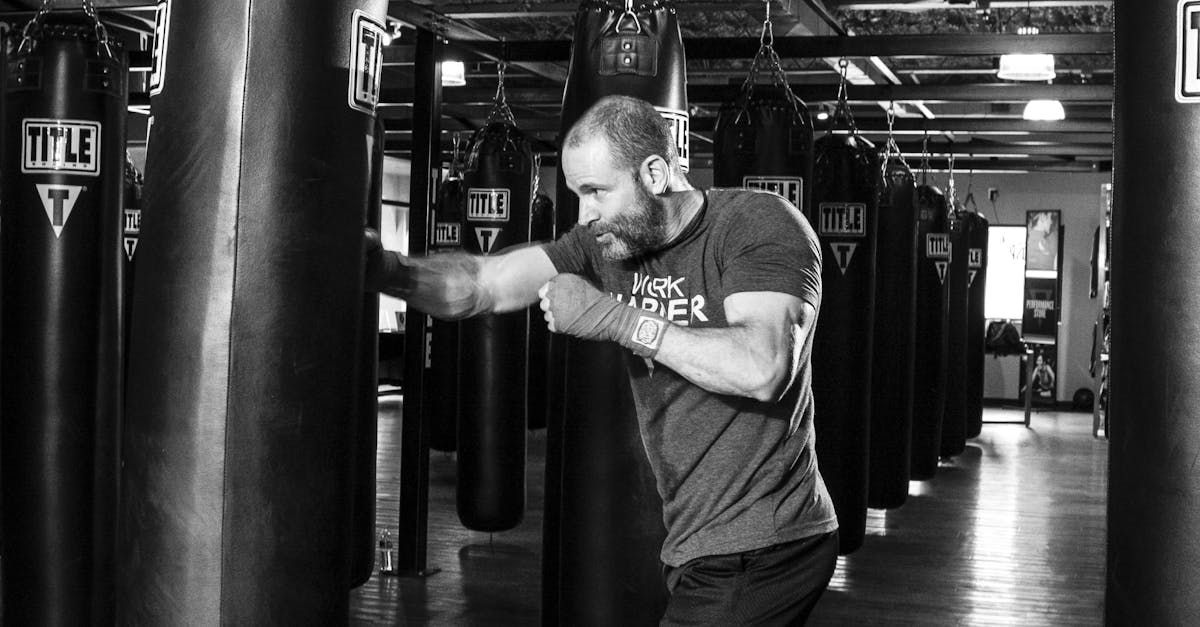Boxing Training: A Proven Aid for Motor Skills and Degenerative Diseases
Boxing is for everyone, it improves motor skills

Boxing training, often perceived solely as a high-intensity sport, has gained recognition for its significant health benefits beyond the ring. Emerging evidence suggests that boxing training can be particularly effective in improving motor skills and aiding individuals with degenerative diseases such as Alzheimer's.
Enhancing Motor Skills
Boxing training involves a combination of aerobic and anaerobic exercises that require coordination, balance, and precise movements. These elements collectively contribute to the enhancement of motor skills. For instance, a study published in the "American Journal of Preventive Medicine" highlighted that participants engaged in boxing training showed notable improvements in their motor skills, including hand-eye coordination and overall agility. This improvement is attributed to the repetitive nature of boxing drills, which demand constant adjustments and quick reflexes.
In real-world applications, programs like "Rock Steady Boxing" have been pivotal in demonstrating the efficacy of boxing training. Rock Steady Boxing, a nonprofit organization, offers boxing classes tailored specifically for individuals with Parkinson's disease, another condition characterized by motor skill deterioration. Participants in this program have reported significant improvements in their balance, coordination, and overall physical condition. Testimonials from individuals like Mary, a participant diagnosed with Parkinson's, illustrate this: "Since joining Rock Steady Boxing, my tremors have reduced, and I feel more in control of my movements."
Addressing Degenerative Diseases
Alzheimer's disease, a progressive neurological disorder, affects millions worldwide, leading to cognitive decline and impaired motor functions. Traditional treatment options focus primarily on slowing disease progression and managing symptoms. However, innovative approaches like boxing training are emerging as complementary therapies.
Research published in "The Lancet Neurology" suggests that physical exercise, particularly activities involving complex movements and cognitive engagement, can have a protective effect on brain health. Boxing training fits this criterion perfectly. The sport's inherent requirement for strategic thinking, memory, and quick decision-making provides a dual benefit: physical exercise and cognitive stimulation.
A notable example comes from a study conducted at the Cleveland Clinic Lou Ruvo Center for Brain Health. The study involved Alzheimer's patients participating in a structured boxing training program. Results indicated not only a stabilization of cognitive decline but also an improvement in physical abilities and quality of life. One participant, John, shared his experience: "Boxing has given me a new lease on life. I feel more alert and physically capable. It’s like my body and mind are working together again."
Broader Implications
The success stories from programs like Rock Steady Boxing and research findings from institutions like the Cleveland Clinic highlight the broader implications of incorporating boxing training into therapeutic regimens. These programs underscore the potential of boxing to serve as a viable intervention for individuals suffering from various motor and cognitive impairments.
Furthermore, the inclusive nature of boxing training allows for modifications to suit different fitness levels and abilities, making it accessible to a wide range of individuals. This adaptability is crucial in ensuring that those with degenerative diseases can participate safely and benefit from the exercises.
Conclusion
Boxing training stands out as a multifaceted exercise regime that offers significant benefits for improving motor skills and aiding those with degenerative diseases such as Alzheimer's. Real-world examples and scientific studies provide compelling evidence of its effectiveness. As awareness of these benefits grows, boxing training could become a cornerstone in the holistic management of degenerative diseases, offering hope and improved quality of life to many.
By combining physical exertion with cognitive engagement, boxing training not only enhances physical capabilities but also offers a promising avenue for maintaining and improving brain health. As such, it deserves serious consideration from healthcare professionals, caregivers, and individuals seeking comprehensive approaches to managing motor skill deterioration and cognitive decline.



















